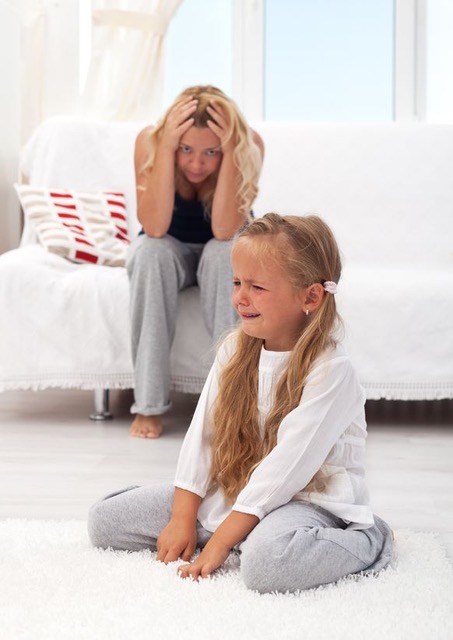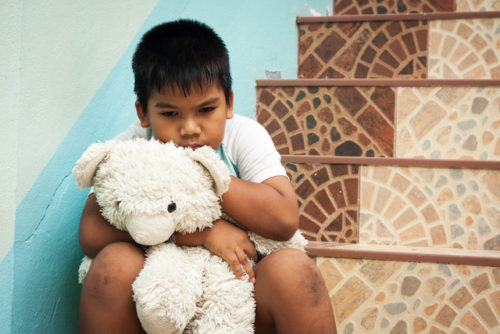-
 15-20% of children are highly sensitive and many of these children suffer in silence because parents and other adults don’t know about highly sensitive youth (HSY) and how to support them. HSY often find the world an overwhelming and challenging place, and they grapple with mental health issues and loneliness, including thoughts of suicide. This is due to their extraordinary ability to feel and sense everything so deeply. Highly sensitive children perceive, feel, and process sensations and feelings more intensely than children who don’t have a heightened sensitivity. Because they have heightened sensitivity, intense experiences and environments can overwhelm their nervous systems. This can lead to emotional meltdowns and to being scared and hesitant to try to new things. Sensitivity is a form of intelligence and can be a tremendous gift for children and teenagers if they receive the support that they need to thrive. Take only 15 minutes a day for 6 days to learn how to support highly sensitive youth (HSY). This mini-course will support parents and caregivers in understanding who highly sensitive youth are, what they need to thrive, and how to support them in dealing effectively with this fast paced and intense world.
15-20% of children are highly sensitive and many of these children suffer in silence because parents and other adults don’t know about highly sensitive youth (HSY) and how to support them. HSY often find the world an overwhelming and challenging place, and they grapple with mental health issues and loneliness, including thoughts of suicide. This is due to their extraordinary ability to feel and sense everything so deeply. Highly sensitive children perceive, feel, and process sensations and feelings more intensely than children who don’t have a heightened sensitivity. Because they have heightened sensitivity, intense experiences and environments can overwhelm their nervous systems. This can lead to emotional meltdowns and to being scared and hesitant to try to new things. Sensitivity is a form of intelligence and can be a tremendous gift for children and teenagers if they receive the support that they need to thrive. Take only 15 minutes a day for 6 days to learn how to support highly sensitive youth (HSY). This mini-course will support parents and caregivers in understanding who highly sensitive youth are, what they need to thrive, and how to support them in dealing effectively with this fast paced and intense world. -
 Trauma has been become a worldwide crisis that is having a profound effect on young people’s behavior, attention, and academic performance. Trauma was a huge issue before the pandemic, and now it is an even more prevalent issue impacting so many children and teenagers throughout the world. If you take into consideration the violence, school shootings, and the lack of mental health services for young people, you can understand why we have a major mental health crisis in the world. Many children and teenagers who have experienced trauma are dealing with traumatic stress or Post Traumatic Stress Disorder ( PTSD) and have not been diagnosed and aren’t receiving the proper therapy and support to heal the trauma. To make matters worse, the majority of doctors and pediatricians aren’t trained in recognizing the symptoms of developmental trauma and often prescribe medication to address anxiety, attention, or hyperactivity issues without referring them for a consultation with a trauma trained therapist. Young people are reprimanded and even punished for behavior that is related to coping with the uncomfortable bodily sensations and emotions resulting from trauma or PTSD. It is so important that parents become trauma informed by learning about trauma and PTSD. This mini-course will support parents and caregivers in learning about trauma and techniques to support your traumatized children. The mini-course is about 15 minutes a day for 6 days, done at your own pace. Take about 15 minutes a day for 6 days to learn about trauma and how to support your child(ren) in coping and healing from it.
Trauma has been become a worldwide crisis that is having a profound effect on young people’s behavior, attention, and academic performance. Trauma was a huge issue before the pandemic, and now it is an even more prevalent issue impacting so many children and teenagers throughout the world. If you take into consideration the violence, school shootings, and the lack of mental health services for young people, you can understand why we have a major mental health crisis in the world. Many children and teenagers who have experienced trauma are dealing with traumatic stress or Post Traumatic Stress Disorder ( PTSD) and have not been diagnosed and aren’t receiving the proper therapy and support to heal the trauma. To make matters worse, the majority of doctors and pediatricians aren’t trained in recognizing the symptoms of developmental trauma and often prescribe medication to address anxiety, attention, or hyperactivity issues without referring them for a consultation with a trauma trained therapist. Young people are reprimanded and even punished for behavior that is related to coping with the uncomfortable bodily sensations and emotions resulting from trauma or PTSD. It is so important that parents become trauma informed by learning about trauma and PTSD. This mini-course will support parents and caregivers in learning about trauma and techniques to support your traumatized children. The mini-course is about 15 minutes a day for 6 days, done at your own pace. Take about 15 minutes a day for 6 days to learn about trauma and how to support your child(ren) in coping and healing from it. -

Meetings on Monday April 22, April 29, May 6, May 13
Time: 4 - 5 PM
Cost: $80 for the 4 Sessions
Focus:
Integrating SEL Into the Montessori Day in Simple, Quick Ways
Goals:
- To review, explore, practice, and discuss the SEL ideas that I shared at the AIMS conference for integrating SEL into your Montessori day
- To share SEL integration successes and challenges, ask questions, and receive support from me and other Montessori teachers



